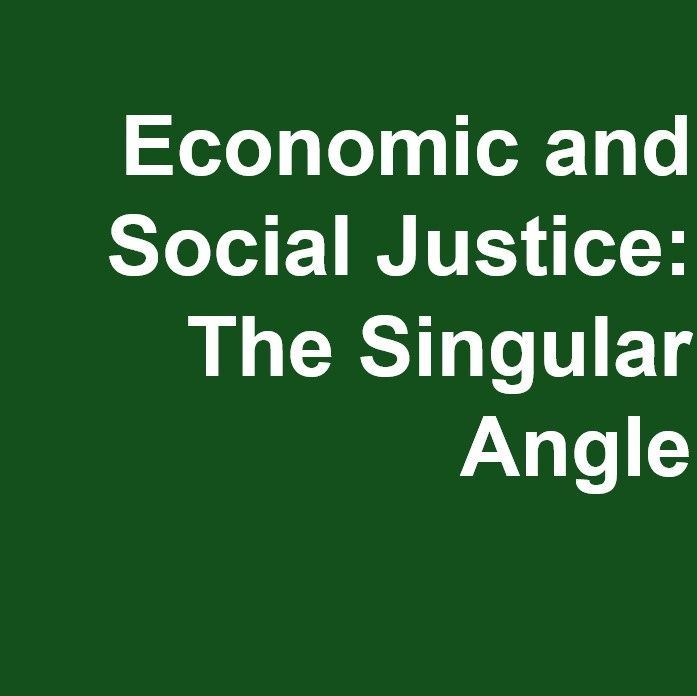The Unifying Nature of Economic Justice
The Singular Movement focuses on economic justice rather than social justice. It is built on the principle that true American prosperity begins with financial security and opportunity for all Americans. Its goal is to drive widespread economic stability through a fair and simplified tax system that allows individuals to keep more of what they earn while maintaining a strong economic safety net.
It prioritizes economic justice because, unlike many modern social justice movements that have become increasingly polarizing, economic justice retains broad-based appeal. In recent years, public support for social justice initiatives has waned amid concerns over perceived overreach and divisiveness. Terms like “wokeness” have been weaponized in political discourse, while diversity, equity, and inclusion (DEI) programs have faced mounting backlash. Economic justice, by contrast, offers tangible, universal benefits that uplift all Americans, making it a more unifying and politically viable approach—one that fosters solidarity rather than division.
Economic and Social Justice
In modern discourse, economic justice and social justice are often discussed together, yet they are distinct in focus, impact, and longevity. Economic justice concerns itself with the fair distribution of resources, opportunities, and wealth, ensuring that all individuals, regardless of background, have access to employment, fair wages, housing, healthcare, and education. Social justice, on the other hand, aims to address injustices related to race, gender, identity, and other social categories.
Without economic justice, social justice victories often lack substance. Legal protections against discrimination do not guarantee equal economic opportunity. For example, while women may be safeguarded from workplace bias, persistent wage gaps and restricted access to capital continue to hinder true gender equality.
Economic justice offers a more comprehensive solution by targeting the structural economic barriers that impact all marginalized communities. While social justice movements focus on specific inequalities, their progress can be limited if economic inequities remain unaddressed. Sustainable change requires economic empowerment, as financial security is the foundation upon which broader social justice initiatives can thrive.
The Foundation for Lasting Social Justice
The Singular Movement espouses the idea that economic justice is the most effective strategy for achieving lasting social justice. By focusing on broad economic opportunity, the Singular Movement delivers practical, inclusive reforms that drive meaningful systemic change.
Rather than focusing on divisive identity-based issues, the Singular Movement promotes universal economic reforms that benefit all Americans. Making such things as housing, healthcare, childcare, and education reasonably affordable creates the stability individuals and communities need to thrive. Unlike many social justice initiatives that fuel political polarization, economic justice policies address the root causes of inequality in a way that unites rather than divides.
Economic justice is the foundation for lasting social justice. Correcting unfair taxing policy, and providing economic and healthcare security, create the conditions for a more just and equitable society. If we seek genuine and enduring social justice, we must first achieve economic justice.



